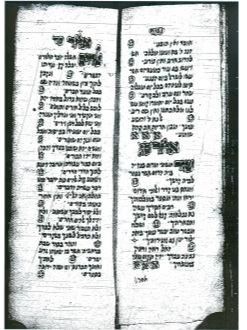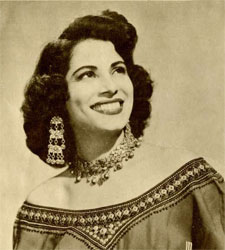Shabbat is almost here
And today we’ll listen to the voice, naked and raw, of Shoshana Damari, singing a medley of Yemenite poems.
 Hello, how are you? I hope very well. I am late today. The last weeks have been really fast-paced in terms of the workload, I am exhausted. And this made me realize the strong commitment with this initiative of Music Before Shabbat, the email of the Fridays, in which I welcome with you the time for the reflection, the self-care and joy.
Hello, how are you? I hope very well. I am late today. The last weeks have been really fast-paced in terms of the workload, I am exhausted. And this made me realize the strong commitment with this initiative of Music Before Shabbat, the email of the Fridays, in which I welcome with you the time for the reflection, the self-care and joy.
Few editions ago, I discovered Shoshana Damari. It was thanks to Olga Mieleszczuk. Read about Olga, here. She mentioned about her piece of music several interesting artists that preceded her in history and thus opened new threads. Shoshana seems to be a great diva in Israel but I think she is not so famous abroad. Let’s listen to her, with a piece that is a mix of three Yemenite songs. Discover more below.
| Share the joy of music and learning with your beloved ones. Share MBS. Thank you in advance. |
About the medley of Yemenite poems
1. Tzur Menati
It is a poem written by Shalem Shabazi (you can find it written as Shalom too), a Yemenite Jewish poet from 17th century, of whom there are around 550 poems. He wrote in Hebrew, Aramaic and Arabic. He was already mentioned in this previous edition.
It is a shira. According to Avner Bahat in the booklet of The Yemenite Jews, from the Anthology of Traditional Musics edited by the label Auvidis for the UNESCO Collection), shira is: “Literally “singing”. The shira is the central musical event at any social or ceremonial gathering. It is composed in the muwashshah poetic form (in strophes), each strophe with its own rhyme, but one rhyme being common to the closing lines of all the strophes, creating the impression of a kind of refrain. The shira is danced too and is accompanied by a percussive rhythm tapped out on tin cans or copper plates (tsahan). Following the destruction of the Temple, the Jews were forbidden to play musical instruments. The Yemenites circumvented this prohibition by using percussion instruments which they did not classify as “musical”. Today the less orthodox among them also use drums.”
If you read Hebrew, here you are the complete poem. And if you like the song, feel free to check also the rendition by Gulaza and by Ofra Haza (this one includes some dancing, that made me remember a moment of the past, in Poland, in which Igal Gulaza Mizrahi teached me some steps of Yemenite dances… But that is another story).
 2. Elohim Eshala
2. Elohim Eshala
The picture of the old manuscript is Elohim Eshala. It is from the outstanding website of the Jewish Music Research Center. According to this website “Elohim Eshala is a Yemenite Jewish piyyut included in the Diwan, a compendium of paraliturgical poems whose performance by men and children accompanies the Yemenite Jews in Sabbaths and holidays, as well as their family celebrations, most especially circumcisions and weddings.”
You can read more about this concept of Diwan and about the music from the Yemenite Jews in this previous edition about the piyyut Im Nin’Alu.
This piyyut has also been sung many times. Feel free to check this version by Geula Gill.
3. Sar HaMamuno
This is another shira with a poem by Shabazi. From that album mentioned above, you can listen this version of Sar HaMamuno. And it is very easy to find super cheesy versions in Youtube. Somehow this song seems to be specially inspiring of terrible ugly renditions. But if you want to listen to another, this is nice. It seems to be sung by a group from the Shchunat Hatikva theatre workshop. The Hatikva quarter is a quarter in southeastern Tel Aviv. Ofra Haza was from there and she joined this workshop at her 12 years old.
About Shoshana Damari

 Damari was born in Dhamar, Yemen, in 1923 and her family moved to Palestine when she was 2 years old. She was a professional of performing since she was very young. She joined the satirical theatre troupe Li La Lo, of which I already talked briefly in the edition about Olga Mieleszczuk.
Damari was born in Dhamar, Yemen, in 1923 and her family moved to Palestine when she was 2 years old. She was a professional of performing since she was very young. She joined the satirical theatre troupe Li La Lo, of which I already talked briefly in the edition about Olga Mieleszczuk.
The picture above is from the detention camps set in Cyprus, following the declaration of the State of Israel, where she performed accompanied by Moshe Wilensky.
She achieved great success. She died in 2006 of pneumonia, considered a symbol of an era of Israeli culture.
This portrait is from the website of The Recorded Sound Archives (RSA) by Florida Atlantic University.
::Click the picture to listen to Tzur Menati by Shoshana Damari:
Shabbat Shalom.
Araceli Tzigane | Mapamundi Música
